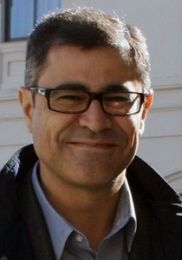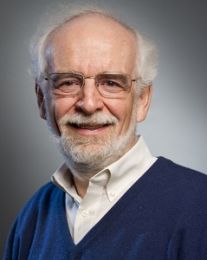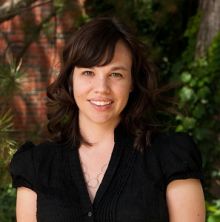 Theories in the Field of Community Psychology
Theories in the Field of Community PsychologyLeonard A. Jason, Ed Stevens, Daphna Ram, Steven A. Miller, Christopher R. Beasley, Kristen D. Gleason (USA)
In this article, we review some of the key attributes of useful theories and assess whether these attributes are present in several prominent Community Psychology theories.
Read more... Our Theories Are Only As Good As Our Methods
Our Theories Are Only As Good As Our MethodsJohn P. Barile and Anna R. Smith (USA)
Jason, Stevens, Ram, Miller, Beasley, and Gleason (2016) argue that the vast majority of theories in community psychology are actually frameworks, while specific and testable theories remain scarce. Suggesting that community psychology could benefit from such theories, the authors identify several impediments to theory development: researcher unwillingness, difficulty defining and operationalizing constructs, and difficulty capturing context. This response addresses the last challenge, highlighting the importance of using appropriate methods when developing testable theories.
Read more... Alternatives to Theory Development
Alternatives to Theory Development Bill Berkowitz (USA)
Start with the preliminaries: It’s good that Jason, Stevens, Ram, Miller, Beasley, and Gleason’s (2016) paper has been written and that we’re responding to it. Discussions of theory are relatively rare in the community psychology literature; for that reason alone I’m glad this is happening.
The paper itself features a thorough and sophisticated exposition of theory and what theory is supposed to do, based on the twin premises that community psychology should be a science and therefore be guided by conventional standards of scientific inquiry.
I believe that current community psychology theory has little demonstrated value for practitioners. While it may describe or explain, it is not easily testable, it has not been shown to make helpful predictions, and it usually provides no clear direction for practitioner behavior.
Read more... Pragmatism, Praxis, and Predictive Theory
Pragmatism, Praxis, and Predictive TheoryBrian D. Christens (USA)
Jason, Stevens, Ram, Miller, Beasley, and Gleason (2016) invoke particular views of “true science” (p. 4) and “hard science” (p. 7) in their call for “more rigorous and predictive theory” (p. 21) in community psychology. They explain that a theory (as opposed to a framework or a model) makes predictions about causal relationships that are specific enough that they can be empirically tested and either verified or falsified under various conditions. In my view, the central thrust of their article – away from a pragmatic action orientation to inquiry and toward testing of predictive theories – could actually hamper the field’s progress toward its goals, if adopted more broadly in the field of community psychology.
Read more... Ecological Settings and Theory of Community Action: “There is Nothing More Practical Than a Good Theory” in Community Psychology
Ecological Settings and Theory of Community Action: “There is Nothing More Practical Than a Good Theory” in Community PsychologyIsidro Maya Jariego (Spain)
"There is nothing more practical than a good theory" (Lewin, 1952, p. 169). Since its inception, community psychology has been characterized by simultaneously pursuing the social utility of scientific knowledge and the theoretical value of practice (Lewin, 1946). Theories contribute to community change, while the lessons learned in community intervention in turn contribute to improve our knowledge of social reality. In terms of action research, theoretical models perform a central role in mediating between science and practice. However, when we ask community psychologists which models they consider essential for community research and action, the picture is very complex. As I will elaborate below, community research of the last several decades provides a basis for proposing a systematic view of community settings and a theory of the processes of community action and change.
Read more... Cacophony is Music to our Minds
Cacophony is Music to our MindsChristopher B. Keys (USA)
The clarity of a single note played beautifully can be a highlight of a musical performance. Jason, Stevens, Ram, Beasley and Gleason (2016) do us a service by reminding us of the distilled clarity that arises from a pure note played well in community psychology. In science this can includes theory-based predictions that are tested and affirmed, or tested and either discarded or improved. Such clear moments can be uncommon and are special instances of scientific progress. Seeking such clarity of theory is important in advancing science. For this brief comment I focus primarily on generativity as a one of several valuable functions of scientific theory that is given little attention by some of the sources Jason and colleagues cite in defense of their position.
Read more... Theories in Community Psychology: Do They Matter and Why?
Theories in Community Psychology: Do They Matter and Why?Raymond P. Lorion (USA)
Typically, a field designates a line of inquiry or area of study within a recognized scientific and professional base of substantive expertise, i.e., a discipline. I would posit that a sine qua non of a science-based community psychology discipline would be foundational knowledge built upon accepted theoretical explanations of how the physical, psychosocial, political, economic, cultural, and related salient setting characteristics shape human behavior and well-being.
Read more... Phenomenon of Interest, Framework, or Theory? Building Better Explanations in Community Psychology
Phenomenon of Interest, Framework, or Theory? Building Better Explanations in Community PsychologyJennifer Watling Neal (USA)
Theories are a fundamental part of research. They provide guidance for the development of research questions and testable hypotheses as well as inform study methods and designs. However, in this issue, Jason, Stevens, Ram, Miller, Beasley, and Gleason (2016) raise important questions including: Are prominent “theories” in community psychology really theories? How useful are these “theories” for developing specific predictions and testable hypotheses? And, how can the field continue to develop and test theories that promote its agenda of social change? However, despite these major contributions, in this response I contend that the “prominent theories” identified by Jason et al (2016) were never intended to be theories in the first place.
Read more... Celebrating Our Evolving, Interdisciplinary, Contextually-Embedded Field
Celebrating Our Evolving, Interdisciplinary, Contextually-Embedded FieldJean E. Rhodes (USA)
What use is a theory if it cannot describe, explain, specify, and predict phenomena of interest? Applying this metric, Jason, Stevens, Ram, Miller, Beasley, and Gleason (2016) demonstrate the limits of three of the foundational theories of community psychology. The challenge for these and other theories stems from the field’s complexity and multiple levels of analysis. Consequently, many of the defining constructs (e.g., neighborhood, social ecology, empowerment) are insufficiently specified and tested. Yet, in light of the inherently interdisciplinary nature of community psychology, its attunement to evolving societal issues, and its broad, multi-level foci, one could argue that community psychology may never yield to the rigors and conventions of traditional psychological inquiry in ways that produce a distinct unifying theory.
Read more... In Defence of a Multi-Paradigmatic Approach to Theory Development in Community Psychology
In Defence of a Multi-Paradigmatic Approach to Theory Development in Community PsychologyGlenn A. Williams (UK)
It was once said, “There is nothing more practical than a good theory” (Lewin, 1952, p. 169) and yet Community Psychology (CP) as a practical discipline is beset with a theory-practice gulf that does not appear to be narrowing. The article by Jason, Stevens, Ram, Miller, Beasley, and Gleason (2016) plays a commendable role in outlining the challenges faced by community-based researchers and practitioners in developing, testing and utilizing theoretical approaches that could reliably benefit the health and well-being of target groups in a community. Quite rightly, Jason et al. (2016) have acknowledged that theories used in the field of CP should more accurately be termed as frameworks, rather than constituting actual theories, since theories would be expected to offer a comprehensive methodology for explaining and predicting behaviors in a range of settings. And herein lies the problem… Should the CP discipline be aimed at transposing findings, and theories, developed from research conducted in one type of social environment to a host of other potentially similar social settings?
Read more... Theories, Models, and Science in Community Psychology
Theories, Models, and Science in Community PsychologyJacob Kraemer Tebes (USA)
I appreciate the opportunity to comment on the paper by Jason, Stevens, Ram, Miller, Beasley, and Gleason (2016) entitled, “Theories in the Field of Community Psychology.” The authors tackle an important, but often neglected issue – the use of theories in science – and consider how well theories in community psychology advance scientific inquiry. Jason et al. (2016) provide a valuable service to our field in their examination of theories in community psychology, and specifically, theories in three major areas: ecological theory, sense of community, and empowerment. Their brief review of theory in each area provides a useful summary and a call to action for further specification of theory. They have started a conversation vital to our field’s future.
Read more... Our Reflections on the Reactions to “Theories in the Field of Community Psychology”
Our Reflections on the Reactions to “Theories in the Field of Community Psychology”Leonard A. Jason, Ed Stevens, Daphna Ram, Steven A. Miller, Christopher R. Beasley, Kristen Gleason (USA)
We recognize that our article (Jason, Stevens, Ram, Miller, Beasley, & Gleason, 2016) will be controversial, and we are delighted that it has sparked some lively discussions. Our thesis is that research in our field could benefit from being evaluated on how it contributes to theory (including the development of one’s own). We believe that this recommendation represents a significant and constructive step forward. Our reflections on a number of the issues raised by those who wrote reactions to our article are below.
Read more...In the spring of 2015, Lenny Jason, Daphna Ram, and Ed Stevens posted a note on the Society for Community Research and Action listserv. We were very gratified by the responses, and many privately asked us if we would be willing to share the responses with the larger SCRA community. This is the culmination of that conversation, though clearly not the end.